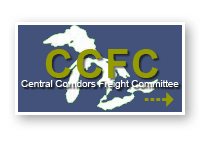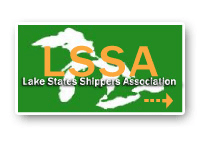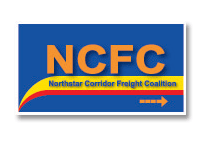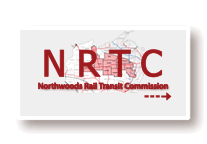2nd Bi-Annual Great Lakes Forestry Policy Conference June 24, 2013
Posted 07/18/2013
The Conference, hosted by U.S. Congressmen Dan Benishek (MI-1), Sean Duffy (WI-7) and Reid Ribble (WI-8), at Potawatomi Carter Casino Hotel, Wabeno, WI, drew some 285 registered participants. The panel on "Timber Transportation Issues" moderated by Congressman Ribble, featured: Tom Tisa, Canadian National's Director, Network Strategies; DJ Aderman, President, Futurewood Corp. (affiliated with Johnson Timber); and Jake Hayrynen, Forest Products Manager, JM Longyear, LLC. The three panelists serve on the Canadian National Advisory Board. Futurewood and Longyear also serve on the CN/WCGroup Log Committee. The Log Committee is dedicated to dramatically expanding rail transportation of the products of the Great Lakes Forests and, thus, their competitiveness in local national and export markets.
Other panels included: a Tribal Perspective on Land & Timber Management; a Conversation about the Economic Importance of Timber; Innovative and Alternative Solutions in National Forest Management with MI State Senator Tom Casperson and WI State Senator Tom Tiffany; and a US Forest Management Roundtable featuring Kathleen Atkinson, US Forest Service Regional Forester, Milwaukee, Anthony Scardina, Forest Supervisor, Ottawa National Forest and Paul Strong, Forest Supervisor, Chequamegon Nicolet National Forest.
Al Murray, Forest County Potawatomi Forester, share and endorsed one of the Nation's earliest conservationists:
And now first and foremost you can never afford to forget for one moment what is the object of our forest policy. That object is not to preserve the forests because they are beautiful, though that is good in itself, nor because they are refuges for the wild creatures of the wilderness, though that, too, is good in itself, but the primary object of our forest policy as of the land policy of the United States, is the making of prosperous homes. It is part of the traditional policy of homemaking in our country. Every other consideration comes as secondary. You yourselves have got to keep this practical object before your minds, to remember that a forest which contributes nothing to the wealth, progress or safety of the country is of no interest to the Government and should be of little interest to the forester. Your attention must be directed to the preservation of forests, not as an end in itself, but as a means of preserving and increasing the prosperity of the nation. |
President Theodore Roosevelt, speech to a meeting of the Society of American Foresters, Washington DC, March 26, 1903. All of the forestry experts at the Conference, directly or indirectly, embraced President Teddy Roosevelt's declaration.
Though individual practices may vary, the foresters appeared to agree that one must manage for the health of the forest — which means taking the worst first, managing for what is to be left standing. A healthy forest is resilient, whether to disease or fire or climate change. A healthy forest must be harvested as scheduled. A major challenge is finding a home — i.e., market — for the timber that must be harvested to maintain a healthy forest. Hence, healthy forest products markets and a healthy forest products industry is core to healthy forests, as well as the communities of the Great Lakes Forest region. Thank you, Teddy Roosevelt.
The Great Lakes Forest and community resources, thus, are the central context for the commitment of Canadian National and our WCGroup stakeholders working collaboratively to increase freight on the region's lighter density rail lines and, thus, to assure the most competitive and sustainable transportation for the products of the Great Lakes Forest.
The Conference folder included two handouts provided by WCGroup which were highlighted in the Timber Transportation Issues panel presentations and discussion: (1) a map of the rail lines and current Northwoods Rail Transit Commission membership (10 WI counties); and (2) a WCGroup mission and issues sheet, including several suggested answers to the question "What can our Congressional Representatives do to help this effort?" and emphasizing WCGroup's theame:
"Industries, jobs and taxes want to go where the railroad is."
Wick Moorman, CEO Norfold Southern, Congressional Testimony, 4/24/2013.




